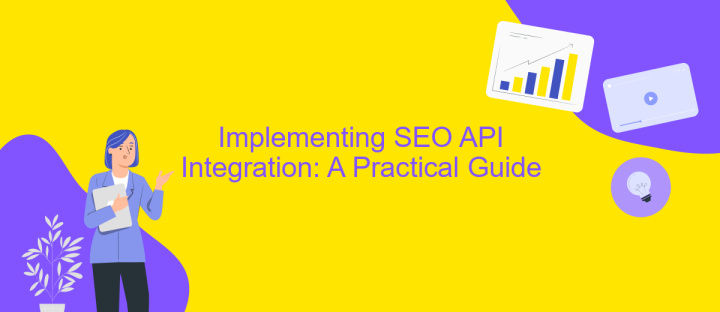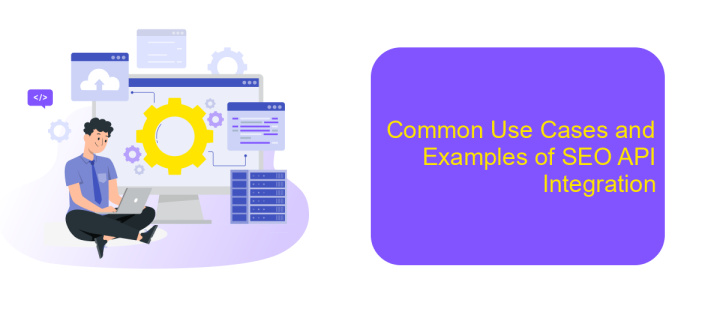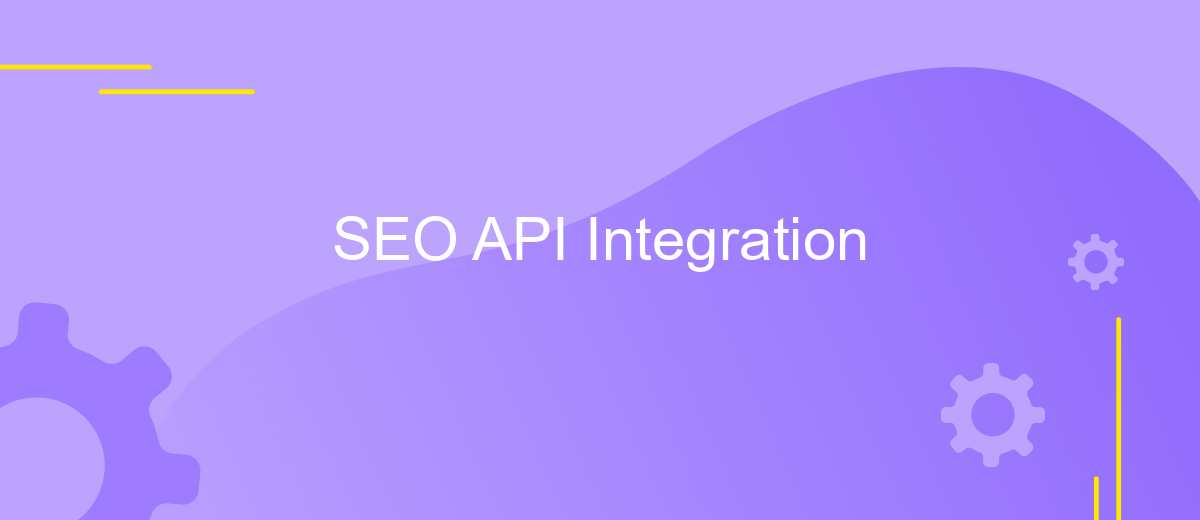SEO API Integration
Integrating SEO APIs into your digital strategy is a game-changer for enhancing online visibility and performance. By leveraging these powerful tools, businesses can automate data collection, gain valuable insights, and make informed decisions to optimize their websites. Whether you're tracking keyword rankings, analyzing backlinks, or monitoring site health, SEO API integration streamlines processes and provides a competitive edge in the ever-evolving digital landscape.
Understanding SEO API Integration and its Benefits
SEO API integration is a powerful tool that enables businesses to enhance their search engine optimization efforts by leveraging data and functionalities from various SEO platforms directly into their systems. This integration allows for seamless access to real-time data, which is crucial for making informed decisions and optimizing strategies effectively. By integrating SEO APIs, businesses can automate tasks, streamline workflows, and gain insights that are otherwise challenging to obtain manually.
- Automated data retrieval for continuous SEO monitoring
- Enhanced reporting capabilities with real-time data
- Improved keyword analysis and tracking
- Efficient competitor analysis and benchmarking
- Scalable solutions for large-scale SEO operations
By adopting SEO API integration, companies can significantly improve their SEO performance while saving time and resources. This integration not only facilitates better data management but also empowers businesses to stay ahead of the competition by quickly adapting to market changes. Ultimately, SEO API integration provides a strategic advantage, enabling businesses to optimize their online presence and achieve their digital marketing goals more effectively.
Key Considerations for Choosing an SEO API

When selecting an SEO API, it's crucial to consider the data accuracy and reliability it offers. The quality of data directly impacts your SEO strategies and decision-making processes. Ensure that the API provides real-time data updates and comprehensive insights into search engine rankings, keyword performance, and competitor analysis. Additionally, check if the API supports the specific search engines and regions relevant to your business needs.
Another key consideration is the ease of integration and scalability of the API. Opt for an API that offers straightforward integration processes, preferably with platforms like ApiX-Drive, which simplifies the connection between various services and applications. This can save time and resources, enabling you to focus on leveraging insights for your SEO efforts. Also, assess the scalability of the API to ensure it can grow alongside your business, accommodating increased data demands and evolving SEO strategies.
Implementing SEO API Integration: A Practical Guide

Integrating an SEO API into your digital strategy can significantly enhance your website's performance by providing valuable insights and automating tasks. To begin, you need to choose an SEO API that aligns with your specific needs, whether it's keyword analysis, backlink tracking, or site auditing. Once selected, ensure you have the necessary API key and documentation to facilitate a smooth integration process.
- Authenticate your API access by securely storing and managing your API key.
- Set up API endpoints in your application to fetch the required data.
- Parse and process the API responses to extract meaningful insights.
- Integrate these insights into your existing SEO tools or dashboards.
- Regularly monitor API usage and update your implementation as needed.
Successfully implementing an SEO API integration requires careful planning and execution. By following these steps, you can streamline your SEO efforts, gain deeper insights, and stay ahead of the competition. Remember to regularly review your API integration to ensure it continues to meet your evolving SEO needs and adjust your strategy accordingly.
Common Use Cases and Examples of SEO API Integration

SEO API integration is a powerful tool that enables businesses to streamline their search engine optimization efforts. By connecting various SEO tools and platforms, businesses can automate tasks, gather insights, and enhance their overall SEO strategy. This integration can significantly improve efficiency and effectiveness in managing SEO campaigns.
One common use case of SEO API integration is in keyword research. By integrating with keyword databases, businesses can access real-time data on search volumes, competition, and trends. Another popular application is in rank tracking, where APIs provide up-to-date information on keyword rankings, allowing businesses to monitor their performance across search engines.
- Automating SEO audits to identify on-page issues.
- Integrating with analytics tools for comprehensive reporting.
- Enhancing content optimization by retrieving relevant data.
- Streamlining backlink analysis and monitoring.
By leveraging SEO API integration, businesses can gain a competitive edge in the digital landscape. It allows for more accurate data analysis, quicker response times to market changes, and a more holistic view of SEO performance. Ultimately, it empowers businesses to make data-driven decisions that enhance their search engine visibility.
- Automate the work of an online store or landing
- Empower through integration
- Don't spend money on programmers and integrators
- Save time by automating routine tasks
Best Practices and Future Trends in SEO API Integration
Integrating SEO APIs effectively requires adherence to best practices that ensure seamless data flow and enhance strategic decision-making. To begin with, prioritize security by using HTTPS protocols and implementing API keys to safeguard data exchanges. Regularly update your API integrations to align with the latest SEO algorithms and features. Utilize tools like ApiX-Drive for streamlined integration processes, allowing you to connect multiple services without extensive coding knowledge. This platform can automate data transfers, saving time and reducing human error, which is crucial for maintaining the accuracy of SEO insights.
Looking towards future trends, the role of AI and machine learning in SEO API integration is set to expand. These technologies will enable more predictive analytics, helping businesses anticipate search trends and consumer behavior more accurately. Additionally, as voice search and mobile-first indexing continue to rise, SEO APIs will need to adapt, offering more granular data and insights tailored to these mediums. Staying ahead in SEO API integration will require continuous learning and adaptation to these evolving technologies and methodologies.
FAQ
What is SEO API Integration?
How can SEO API Integration benefit my business?
What are some common use cases for SEO API Integration?
How can I automate SEO tasks using API Integration?
What should I consider before implementing SEO API Integration?
Time is the most valuable resource in today's business realities. By eliminating the routine from work processes, you will get more opportunities to implement the most daring plans and ideas. Choose – you can continue to waste time, money and nerves on inefficient solutions, or you can use ApiX-Drive, automating work processes and achieving results with minimal investment of money, effort and human resources.


